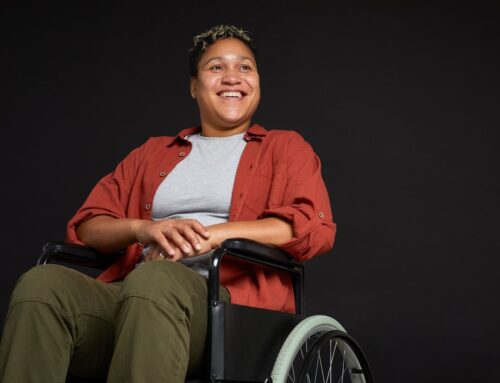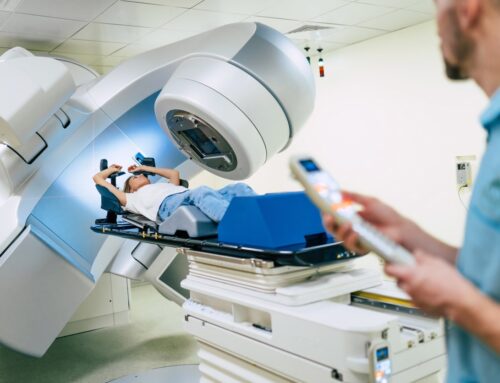
Patient Care for Reflexic and Flaccid Bowel
To ensure high quality care, it is critical that healthcare providers are familiar with effective bowel care protocol(s) for inpatient and/or home care environments.
An ineffective bowel care protocol and secondary complications from constipation and incontinence, may result in reduced patient quality of life, as well as significant facility fiscal overages. Effective bowel care protocols not only provide enhanced patient care, but also result in cost reductions for facilities.
Bowel care program recommendations are determined by the type of neurogenic bowel a patient is experiencing, which includes upper motor neuron bowel (reflex bowel) and lower motor neuron bowel (flaccid bowel).
In this article we discuss the different types of neurogenic bowel, recommendations for enhanced patient care and considerations for bowel care management programs
Types of Neurogenic Bowel: Reflex and Flaccid
Spinal cord injury (SCI) and the resulting neurological damage causes impaired voluntary and reflex activity, altered bowel transit, and impaired storage/evacuation mechanisms.
Spinal cord disorders are classified by neurological level (anatomic level) and by the degree of intactness associated with spinal cord pathways. Bowel function varies depending upon both factors: the level and completeness of the SCI.
Upper Motor Neuron Injury: Reflexic Bowel
For SCI above the T-12 level, or Upper Motor Neuron (UMN) injury, the ability to feel when the rectum is full may be lost.
With UMN injury, the anal sphincter muscle remains tight and bowel movements occur on a reflex basis. This is known as reflexic bowel. In this instance, when the rectum is full the defecation reflex occurs.
With spastic bowel, reflexes cause a hyper reflexic rectal wall and the Pelvic Floor Muscle (PFM) and Internal Anal Sphincter (IAS) will relax reflexively, but evacuation does not occur as expected due to the absence of coordinated reflex/voluntary relaxation of the External Anal Sphincter (EAS).The EAS relaxes unpredictably and an incontinent bowel movement occurs.
Lower Motor Neuron Injury: Flaccid Bowel
For SCI below the T-12 level, or lower motor neuron (LMN) injury, the defecation reflex can be damaged and relax the anal sphincter muscle.
This is known as flaccid bowel. The reflex relaxation of the PFM and IAS is lost. The EAS is also flaccid, but solid stool will remain within the rectum, as the remaining intrinsic nerve propulsion is insufficient for evacuation. In this situation, bowel incontinence will occur if the stool is loose (liquid or semi-solid).
Diagnostic Groups at Risk for Neurogenic Bowel
Some patients are more at risk for complications due to neurogenic bowel, including:
- Spinal Cord Injury (SCI)
- Multiple Sclerosis
- Spina Bifida
- Traumatic Brain Injury (TBI)
- Stroke
An effective bowel care program helps manage both types of neurogenic bowel to prevent unplanned bowel movements and other bowel problems such as constipation, diarrhea and impaction.
Improving Patient Care for Reflexic and Flaccid Bowel
A bowel program for a patient with neurogenic bowel should be designed to take into account personal goals, life schedules, attendant care, role obligations of the individual, and self-rated quality of life.
Bowel programs should be initiated during acute care and continued throughout life, unless full recovery of bowel function returns. Elements to consider for a patient’s bowel care management program include:
- Methods to avoid pressure ulcers and falls
- Social and emotional support
- Designed to be easily replicated in a home or community setting post-discharge
- Effective treatment protocols for common complications of neurogenic bowel, such as fecal impaction, constipation, and hemorrhoids to minimize potential long-term morbidities
Considerations for a Patient’s Bowel Care Program
It’s important to identify a patient’s pre-morbid bowel elimination pattern and use of laxatives or chemical rectal stimulants. Also take into consideration a patient’s risk for (or existing) bowel elimination problems.
Perform a comprehensive patient assessment and establish a daily, predictable bowel care routine. Ensure steps are in place to follow all recommended nutritional and fluid requirements.
Reflexic Bowel Stool Removal
A reflexic bowel program typically involves digital stimulation, which is the manual removal of stool with a gloved finger or dil stick. Manual stool removal can be followed by the use of a laxative product, such as an Enemeez® mini enema, along with circular movement of the finger inside the rectum once the laxative product begins to take effect.
Flaccid Bowel Stool Removal
A flaccid bowel program typically consists of manual-only stimulation, as laxative products are typically less effective for a flaccid bowel. After the removal of any reachable stool, it can also be effective to rotate a gloved finger around inside the rectum, massage the stomach, and get up and move around to keep the stool moving along.
A Stepwise Approach to Management of Constipation
The least invasive approach, or a stepwise approach, to managing a patient’s neurogenic bowel or constipation is recommended. Bear in mind the most natural form of elimination is always the best long-term approach.

Maintaining healthy rectal mucosa is vital for patient quality control measures when using rectal stimulant remedies (i.e. bisacodyl).
Enemeez® Can Help with Proper Bowel Care
The Enemeez® formulation functions as a stool-softening laxative by drawing water into the bowel from surrounding body tissues. The 238 mg of docusate sodium in this mini enema product prepares the stool to readily mix with watery fluids. Not only does it soften and loosen the stool, but it initiates a normal, replicated bowel movement, typically within 2-15 minutes.
Enemeez® Plus contains 20mg of benzocaine, assisting in the anesthetization of the rectum and lower bowel. This formulation was developed for patients who experience autonomic dysreflexia, hemorrhoids, fissures, or painful bowel movements.
Visit the Alliance Labs provider website to request free mini-enema samples for your facility and learn more about our products.
Disclaimer: The material contained is for reference purposes only. Alliance Labs, LLC and Summit Pharmaceuticals do not assume responsibility for patient care. Consult a physician prior to use. Copyright 2020 Summit Pharmaceuticals and Alliance Labs, LLC.
Sources:
http://rehab.washington.edu/patientcare/patientinfo/articles/sci_bowels.asp#:~:text=The%20anal%20sphincter%20muscle%20remains,motor%20neuron%20or%20reflexic%20bowel
ENZ010 Quality Care Bowel Protocol







